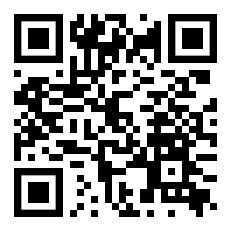The RBNZ is preparing to raise the interest rate by 0.75%. There are signs of a slowdown in inflation in Germany
Over the weekend, Atlanta Fed President Raphael Bostic supported further rate hikes, although he said he would consider slowing the rate hike from 75 basis points to 50. San Francisco Federal Reserve President Mary Daly said Monday that the real impact of the US central bank’s interest rate hike is probably greater than its short-term target rate suggests. Compared to the Fed’s current short-term target rate, which is in the 3.75% to 4.00% range, financial markets are acting as if the rate is around 6%, Daly said. About 85% of analysts expect the Fed to raise by 50 basis points in December.
According to the Federal Statistics Office (Destatis), the producer price index, which measures inflation between factories, slowed. Compared to September 2022, producer prices decreased by 4.2%. This is a good sign, as slowing producer inflation will eventually lead to slower consumer inflation.
UK Prime Minister Rishi Sunak said yesterday that the UK would no longer maintain any relationship with Europe that is based on compliance with EU laws. Britain’s withdrawal from the EU has caused serious economic damage to the region’s economy, so now the new prime minister has to face the consequences of Brexit.
According to Nomura Holdings Inc. Czech Republic, Romania and Hungary will face the risk of exchange rate crises over the next year as fiscal and external problems escalate. The warning is based on an analysis of eight indicators, including import coverage by foreign-exchange reserves, real short-term interest rates, and fiscal and current-account measures.
Crude oil markets rose sharply late in the trading session yesterday after Saudi Arabia, OPEC’s leader, said reports suggesting the cartel planned to increase supply in December were false.
Asian markets were mostly down yesterday. Japan’s Nikkei 225 (JP225) gained 0.16% on Monday, Hong Kong’s Hang Seng (HK50) decreased by 1.87%, and Australia’s S&P/ASX 200 (AU200) ended the day down by 0.17%.
New Zealand’s Central Bank is preparing to raise interest rates by 75 basis points, accelerating monetary tightening to bring inflation under control. According to analysts, tomorrow, the Reserve Bank will raise the official interest rate to 4.25% from 3.5%. This will be the biggest increase since the RBNZ introduced the OCR in 1999. Stronger-than-expected inflation and a near-record-low unemployment rate are forcing the RBNZ to accelerate policy tightening.
Most Asian central banks have also begun raising rates this year to keep up with the US Federal Reserve and are signaling further rate hikes to counter rising inflation.
A record rise in daily infections in China has led to the reintroduction of curbs in major cities, including Beijing and Shanghai. Markets fear tighter curbs could again stifle the country’s economic growth and cause new global supply chain problems.
S&P 500 (F) (US500) 3,949.99 −15.35 (−0.39%)
Dow Jones (US30) 33,700.67 −45.02 (−0.13%)
DAX (DE40) 14,379.93 −51.93 (−0.36%)
FTSE 100 (UK100) 7,376.85 −8.67 (−0.12%)
USD Index 107.77 +0.84 (+0.79%)
News feed for: 2023.07.04
- Australia RBA Governor Lowe Speaks at 09:00 (GMT+3);
- Canada Retail Sales (m/m) at 15:30 (GMT+3);
- FOMC Member Mester Speaks (m/m) at 18:00 (GMT+3);
- FOMC Member George Speaks (m/m) at 21:15 (GMT+3);
- FOMC Member Bullard Speaks (m/m) at 21:45 (GMT+3).
This article reflects a personal opinion and should not be interpreted as an investment advice, and/or offer, and/or a persistent request for carrying out financial transactions, and/or a guarantee, and/or a forecast of future events.
